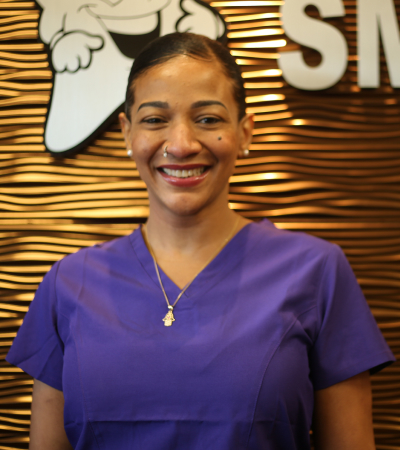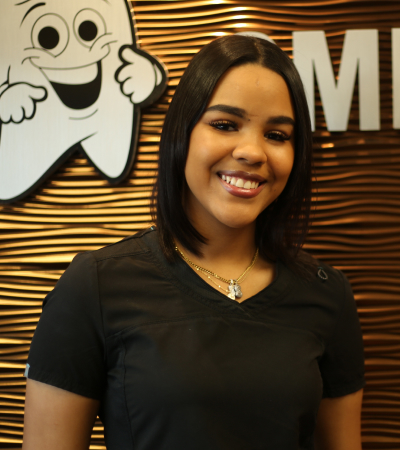Are Baby Teeth Really That Important? Here’s What Every Parent Should Know!
Most parents feel that baby teeth (primary teeth) do not need as much attention because they will fall out and be replaced with permanent teeth. However, this common misconception can lead to extensive oral problems for children. Baby teeth serve key functions in speech, chewing, and guiding the adults into place.
At Smiley Dental of Roslindale, we are pediatric dental specialists, and we educate parents and children alike about the significance of early oral care. In this guide, we will discuss why baby teeth are important, how you can properly take care of them, and how frequent checkups can lay the groundwork for a lifetime of oral health.
What Are Baby Teeth and When Do They Erupt?
Baby teeth begin developing during pregnancy and start coming in at 6 to 12 months old. At age 3, the child will have a complete set of 20 primary teeth. The primary teeth will be present until about age 6, when they begin falling out to give way to the permanent teeth.
Parents need to be aware of this timeline because it identifies the most important time when oral hygiene habits should be established.
Why Do Baby Teeth Fall Out?
- Baby teeth roots degenerate over time, making space for permanent teeth.
- A few baby teeth are held back until age 12 to enable good alignment of adult teeth.
- If a baby tooth is lost early due to decay or trauma, it may cause misalignment issues for permanent teeth.
- Why Are Baby Teeth So Important?
Even though they are temporary, baby teeth are crucial to the development of a child. Here’s why they are so important:
1. Speech Development
Baby teeth help children learn how to pronounce words correctly. Losing teeth prematurely will make pronunciation difficult and speech development more challenging.
2. Chewing and Digestion
Baby teeth help children to chew food properly, which is critical in digestion as well as in nutrition. Fillings that haven’t been done or missing teeth can make eating painful, leading to eating habits that are poor.
3. Holding Space for Permanent Teeth
Baby teeth act as a placeholder for the permanent teeth. If a baby tooth is lost prematurely due to decay or trauma, other teeth will move into its position, leading to misalignment or the need for orthodontics later in life.
4. Avoiding Future Dental Issues
Healthy baby teeth reduce the risk of infections, pain, and decay of permanent teeth. If baby teeth are properly cared for, they set the stage for healthy, strong adult teeth.
Dental Issues in Children
Children are more susceptible to cavities and gum issues because of their diet and developing oral hygiene practices. The following are the most common dental issues:
1. Early Childhood Cavities (Baby Bottle Tooth Decay)
- Caused by repeated exposure to sweetened beverages (milk, juice, formula).
- Bacteria break down sugar, creating acids that soften enamel.
- Prevention: Don’t put babies to bed with milk or juice bottles.
2. Thumb-Sucking and Pacifier Use
- Thumb-sucking for extended periods can cause crooked teeth.
- Dentists advise weaning pacifiers by age 3 to prevent altering the child’s bite.
3. Tooth Grinding (Bruxism
- Some children grind their teeth at night, which can lead to tooth wear and jaw pain.
- If grinding persists, a custom night guard may be prescribed.
4. Delayed Tooth Eruption
- If baby teeth do not erupt by 12 months, a dental appointment is necessary to evaluate underlying issues.
5. Gum Infections and Oral Sores
- Children can develop gum infections, canker sores, and oral trauma due to accidents.
- Any repeated pain, swelling, or bleeding should be examined by a dentist.
Caring for Baby Teeth
Teaching children good oral hygiene at a young age is the best prevention against cavities and dental problems.
Brushing & Flossing Tips for Kids
- Start early – Gently wipe gums of infants with a soft cloth before teeth appear.
- Use a child’s toothbrush – Start with a soft-bristled toothbrush as soon as the very first tooth appears.
- Fluoride toothpaste – Use a pea-sized fluoride toothpaste in children over age 3.
- Floss once a day – Flossing is required after teeth are in contact.
- Brushing supervision – Children under age 7 lack the coordination to brush well.
When Should Kids Have Their First Dental Visit?
The American Dental Association (ADA) and American Academy of Pediatric Dentistry (AAPD) recommend that children see a dentist by the time they are one year old or six months following the appearance of the first tooth.
What is Done on a Child’s First Dental Visit?
- Slight teeth cleaning – Removes plaque and bacteria buildup.
- Fluoride treatment – Strengthens enamel and prevents the development of cavities.
- Exam & X-rays – Checks for decay or misalignment in early stages.
- Parental counseling – Educates parents on the best oral hygiene practices for their child.
Call (857) 888-8000 to Schedule Your Child’s First Dentist Appointment at Smiley Dental of Roslindale!
Is Pediatric Dental Care Covered by Insurance?
Yes! Most dental insurance plans include coverage for:
- Routine checkups & cleanings
- Fluoride application
- Cavities prevention with dental sealants
- X-rays & early orthodontic evaluation
If you’re unsure about your coverage, our team at Smiley Dental of Roslindale can help verify your benefits!
What Happens If Baby Teeth Are Neglected?
Neglecting baby teeth can lead to painful infections, difficulty eating, and early tooth loss. In some cases, untreated cavities in baby teeth can spread infections to permanent teeth, leading to long-term dental problems.
Signs Your Child May Have a Dental Problem:
- Complaining about tooth pain or sensitivity
- Avoiding chewy or crunchy foods
- Red, swollen, or bleeding gums
- Pungent bad breath that lasts
- White or brown spots on the teeth (incipient decay)
If you notice any of these signs, schedule an appointment with Smiley Dental of Roslindale for a thorough examination and treatment plan.
Why Choose Smiley Dental of Roslindale?
- Highly Experienced Pediatric Dentists – We specialize in providing children’s dental care with a friendly, gentle touch.
- Family-Friendly Environment – Our office is designed to make dental visits fun and stress-free.
- Latest Technology – We use the latest technology to offer quick, painless treatments.
- Affordable Payment Options – We offer affordable dental care with flexible payment options.
- Central Location in Roslindale, MA – Conveniently located for busy families.
Schedule Your Child’s Appointment Today!
Provide your child with the best beginning for a lifetime of healthy smiles. Smiley Dental of Roslindale provides gentle, expert pediatric care to maintain bright, cavity-free smiles in little ones.
Schedule Your Child’s First Dental Visit by calling us at (857) 888-8000 or Book Online Now!














